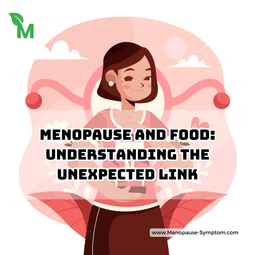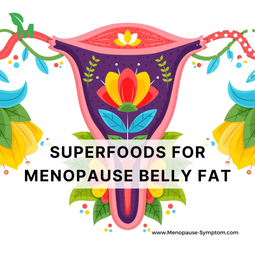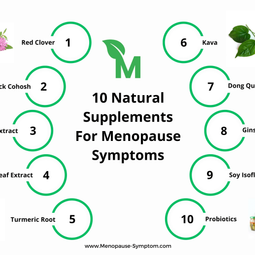Learn about the best foods to nourish your body during perimenopause. From hormone-balancing fruits and veggies to protein-packed meals, find out how to fuel your way through this transitional phase. Eat well, feel great.
Understanding Perimenopause and Nutrition
Perimenopause is a significant phase in a woman's life, marking the transition towards menopause. During this time, your body undergoes various changes, and proper nutrition becomes more crucial than ever. As hormones fluctuate and metabolism shifts, choosing the right foods can make a world of difference in managing symptoms and maintaining overall health.
Why Your Diet Matters in Perimenopause
The foods you consume during perimenopause can significantly impact your well-being. A balanced diet rich in essential nutrients can help alleviate common symptoms such as hot flashes, mood swings, and weight gain. Moreover, it can support bone health, reduce the risk of heart disease, and even boost your energy levels.
Top Foods to Embrace During Perimenopause
1. Calcium-Rich Foods
Calcium is vital for maintaining strong bones, especially as estrogen levels decline. Include these calcium-packed options in your diet:
Low-fat dairy products (milk, yogurt, cheese)
Leafy greens (kale, spinach, collard greens)
Sardines and canned salmon with bones
Fortified plant-based milk alternatives
Did you know? Women can lose up to 20% of their bone density in the years following menopause. Calcium-rich foods are your best defense against osteoporosis.
2. Lean Proteins
Protein is essential for maintaining muscle mass and supporting metabolism. Opt for these lean protein sources:
Skinless chicken and turkey
Fish (salmon, tuna, mackerel)
Legumes (beans, lentils, chickpeas)
Tofu and tempeh
3. Omega-3 Fatty Acids
Omega-3s can help reduce inflammation and support heart and brain health. Include these sources in your meals:
Fatty fish (salmon, sardines, mackerel)
Walnuts and flaxseeds
Chia seeds
Algae-based supplements for vegetarians
4. Fruits and Vegetables
Packed with antioxidants, vitamins, and minerals, fruits and vegetables are crucial for overall health. Focus on:
Berries (blueberries, strawberries, raspberries)
Citrus fruits
Cruciferous vegetables (broccoli, cauliflower, Brussels sprouts)
Colorful vegetables (bell peppers, carrots, sweet potatoes)
5. Whole Grains
Whole grains provide fiber, B vitamins, and minerals. They can help stabilize blood sugar levels and promote digestive health. Choose:
Quinoa
Brown rice
Oats
Whole wheat bread and pasta
Foods to Limit During Perimenopause
While focusing on nutrient-rich foods is essential, it's equally important to be mindful of foods that may exacerbate perimenopausal symptoms:
1. Processed Foods
Highly processed foods often contain added sugars, unhealthy fats, and excess sodium. These can contribute to weight gain, inflammation, and mood swings. Limit your intake of:
Packaged snacks
Sugary cereals
Fast food
Processed meats
2. Caffeine and Alcohol
Both caffeine and alcohol can trigger hot flashes and disrupt sleep patterns. Consider reducing your consumption of:
Coffee
Energy drinks
Alcoholic beverages
3. Spicy Foods
For some women, spicy foods can trigger hot flashes. If you notice this effect, consider reducing your intake of hot peppers and spicy dishes.
Meal Planning for Perimenopausal Women
Creating a balanced meal plan can help ensure you're getting the right nutrients during perimenopause. Here's a sample day of eating:
Breakfast:
Greek yogurt topped with berries and a sprinkle of flaxseeds
Whole grain toast with avocado
Lunch:
Grilled chicken salad with mixed greens, colorful vegetables, and a vinaigrette dressing
Quinoa on the side
Dinner:
Baked salmon with roasted Brussels sprouts and sweet potato
Brown rice pilaf
Snacks:
Apple slices with almond butter
Handful of walnuts and a small piece of dark chocolate
Hydration: The Unsung Hero
Don't forget about the importance of staying hydrated during perimenopause. Adequate water intake can help with:
Managing hot flashes
Supporting digestion
Maintaining skin health
Reducing bloating
Aim for at least 8 glasses of water per day, and consider herbal teas as a soothing alternative.
The Power of Consistency
Remember, the best foods during perimenopause are those that you can consistently incorporate into your diet. It's not about perfection but rather about making sustainable choices that support your health in the long term.
By focusing on nutrient-dense foods, staying hydrated, and being mindful of potential trigger foods, you can navigate perimenopause with greater ease and comfort. Your body is going through significant changes, and nourishing it properly is one of the best ways to support this transition.
Conclusion: Embracing Your Perimenopausal Journey
Perimenopause is a natural phase of life, and with the right nutrition, you can not only manage symptoms but thrive during this time. By choosing the best foods during perimenopause, you're investing in your current and future health.
Remember, every woman's experience with perimenopause is unique. What works for one person may not work for another. Listen to your body, pay attention to how different foods make you feel, and don't hesitate to consult with a healthcare provider or registered dietitian for personalized advice.
Embrace this new chapter of your life with confidence, armed with the knowledge of how to nourish your body effectively. Your perimenopausal journey can be an opportunity for growth, self-discovery, and renewed focus on your health and well-being.
Source: Team MPS compiled, analyzed and wrote. Please dont reup without source of us. Many thanks.




